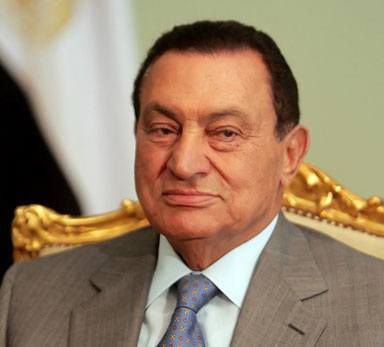
By Paul Adams
IT is a town like any other in the Nile delta, except that its most famous son has fallen from grace.
What do the people of Kafr el-Meselha make of Hosni Mubarak’s ignominious exit?
As we approach the Mubarak family home, Sami Abdul Hafez, who introduces himself as “the poet”, draws up on his motorbike and launches right in.
“Everyone has a history that honours him or dishonours him,” he tells me. “He didn’t like where he came from. He felt it was a mark of shame. That’s why he never admitted where he came from.”
Mubarak made just one visit to the village in 30 years, making a brief appearance at the funeral of an aunt.
- Chamisa under fire over US$120K donation
- Mavhunga puts DeMbare into Chibuku quarterfinals
- Pension funds bet on Cabora Bassa oilfields
- Councils defy govt fire tender directive
Keep Reading
And if the president did not appear to love his village, then it seems the village did not love him back. There are not too many monuments — just a road sign here and a sports club there.
“They don’t feel any kinship,” Sami says. “They feel he disowned them.”
But when protests erupted in Cairo at the end of January, Sami says he nevertheless invited more than 200 locals to a meeting to show solidarity with their beleaguered president. But the result was telling.
“No-one showed up, or even replied,” he says. “The fact that he doesn’t admit being from here is a shame of him, not on us.”
After some debate about where exactly the former president lived, we turn a grubby corner and arrive.
The original family house has gone and now there are two, newer buildings in its place. Yet this is the alleyway where Mubarak was born.
With small children now swarming around us and cups of hot sweet tea suddenly appearing, our lively discussion of the president’s legacy continues. Ashraf, a science teacher, is delighted at what has happened. Egyptians, he tells me, have regained their dignity.
“As long as Mubarak has gone, Egypt will get better and better and better,” he declares. “And if someone comes along and thinks about doing a fraction of what he did, Tahrir Square is always there, and we’ll get rid of him.”
But in this place of traditional values, there is also a sense that Egypt, far from showing its better face, has somehow dishonoured itself.
Another teacher, Ahmad, is happy at the prospect of change, but not at the manner of the president’s departure.
“I’m sad about (what) happened to him,” he says. “This is a bad thing to ask him to go away. This is our president, our leader.”Ahmad admits that the former president made numerous mistakes, but has a simple answer when I ask if he would like to bring him back.“For me? I wish.”
And it is the nagging sense of shame, coupled with the suspicion that foreigners have come to exploit it, that eventually persuades some in Kafr el-Meselha that we are not welcome.
As we film by a battered portrait of the former president — battered by neglect rather than design — a group of men suddenly surrounds us, convinced that we are showing disrespect.
They demand our videotape and there is some threatening language before we are escorted from the village.
Our route takes us out along Mubarak Road.
The man may be gone, but he leaves a swirling mix of conflicting emotions in his wake. —BBCOnline.











